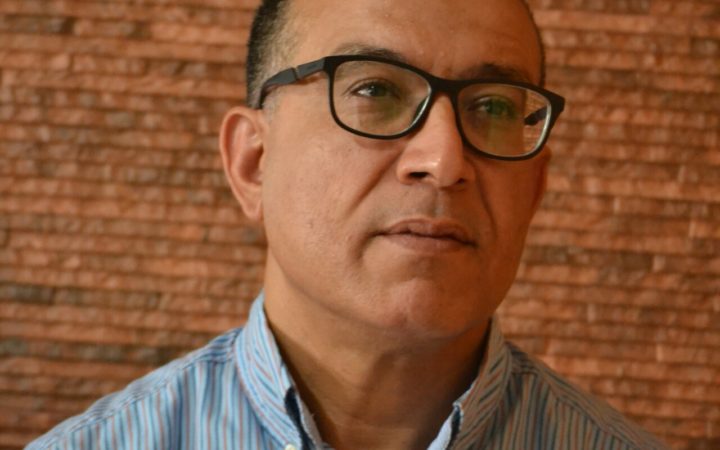
Posted on
(Rome, 21 October 2019) To further understand what the project Edu-BioMed aims at achieving, and the importance of cooperation between higher education programmes and Biosphere Reserves (BR) management, UNIMED – partner of the project Edu-BioMed, has interviewed Mr. Afker Abdel Aziz, partnership officer in the Regional Directorate of Water and Forests and the fight against desertification of the South West (DREFLCD-SO) in Agadir, and manager of the Arganeraie Biosphere Reserve (RBA) Morocco.
The Arganeraie Biosphere Reserve (RBA) is the first biosphere reserve created in Morocco, a Mediterranean country whose natural wealth is most original. This reserve is designed around a forest species endemic to Morocco namely the Argan tree (Argania spinosa). This tree has a high biogeographic value, being the main characteristic of the Macaronesian sector of Morocco. Forest formations based on argan are located in the region of South West Morocco.
What types of trainings do people working in BR undergo?
Afker AbdelAziz: Within the framework of the BR governance system, we can notice the predominance of trainings related to:
- Natural Sciences and Geography (especially biology, ecology, biogeography and phytosociology);
- Forestry (especially the management of natural areas and protected areas);
- Agriculture (especially agronomy, zootechnics, livestock farming and pastoralism):
- Land use planning;
- Hydrology and rural engineering;
- Tourism management.
The absence of certain disciplines is evident, for example territorial sociology or the management of dynamic processes.
In addition, the territory of the BRs is home to all social classes, which, divided into interest groups, have their own ways to interact and to use the resources and the space of this territory. It is therefore necessary to study those individuals’ trainings.
In a nutshell, all types of training related, directly or indirectly, to the components of sustainable development should be part of the curricula activities.
Are students trained in an effective way on BRs during their academic curricula? Do they acquire the necessary competences to work in a BR? If not, which competencies should be reinforced? How do you think university could help in this regard?
Afker AbdelAziz: In view of my professional position, I do not have the competence to evaluate a training system or university courses. However, my assessment results from my contacts with and my observations of the young people during their integration in the professional world.
The undergraduate students are more or less equipped with a fairly complete basic training, instilling in them a useful theoretical knowledge base. However, those students fail to make any constructive reading of territory, and develop reflections that are difficult to put into the practical gear.
Advanced students (Masters and above) are endowed with more or less practical knowledge as they are more experienced and look for the combination of science and knowledge. Accompanying and tutoring them further would enable them to develop their know-how of managing BRs. It is important to highlight the challenge that the lack of contact between these students and the practical reality of BR territories create. Developing more links would allow for better integration and harmony. It is also necessary to point out to the disregard of trainings focused on local sociology or on the management of territorial dynamics because this absence creates massive gaps between the population and the management / development actors.
Ideally, a MAB curriculum would be desirable. It would be essential to create it far from normative standards and closer to regional and local realities. This course should seek the reinforcement of already acquired skills, which would however be reinforced by a horizontal knowledge of BRs, therefore enlightening the complex relationships of the Space-Resources-Uses-Users system. One could even imagine trainings involving a multidisciplinary methodology in groups in the form of introductions to professional challenges in BRs.
Do you think that enhancing the cooperation between BR actors and university programs could have a positive impact on the work done within BRs?
Afker AbdelAziz: There are many actors evolving in BRs with different interests, objectives and roles, sometimes linked and sometimes in opposition to each other. This is a real feature of BRs and university programs should therefore be in adequation with this aspect. To this aim, the cooperation between universities and BR actors should be the most developed possible. This would allow both students and university teachers to not only be “knowledge provider” but also “boosters” of those BRs, leading to positive and lasting impacts.
How do you think universities and students can participate in reducing pressures on biosphere reserves, such as expanding human activities or climate change?
Afker AbdelAziz: I think it is obvious that academia only, through scientific research, can provide arguments useful for any adaptation request in BRs. It is however essential to ensure that the following two elements are present, namely to:
- Avoid static and cliché images of BRs and favor dynamism to mirror the evolution and projection of man and nature,
- Develop arguments in an accessible and simplified way, far from a scientific approach. Local actors translate arguments according to their level and territorial references, without forgetting their interests.
To conclude, it is necessary to highlight that universities contribute closely to the governance of BRs, as the actors involved in such governance are trained in these same universities, where they developed the skills which they currently use in their professional duties.



